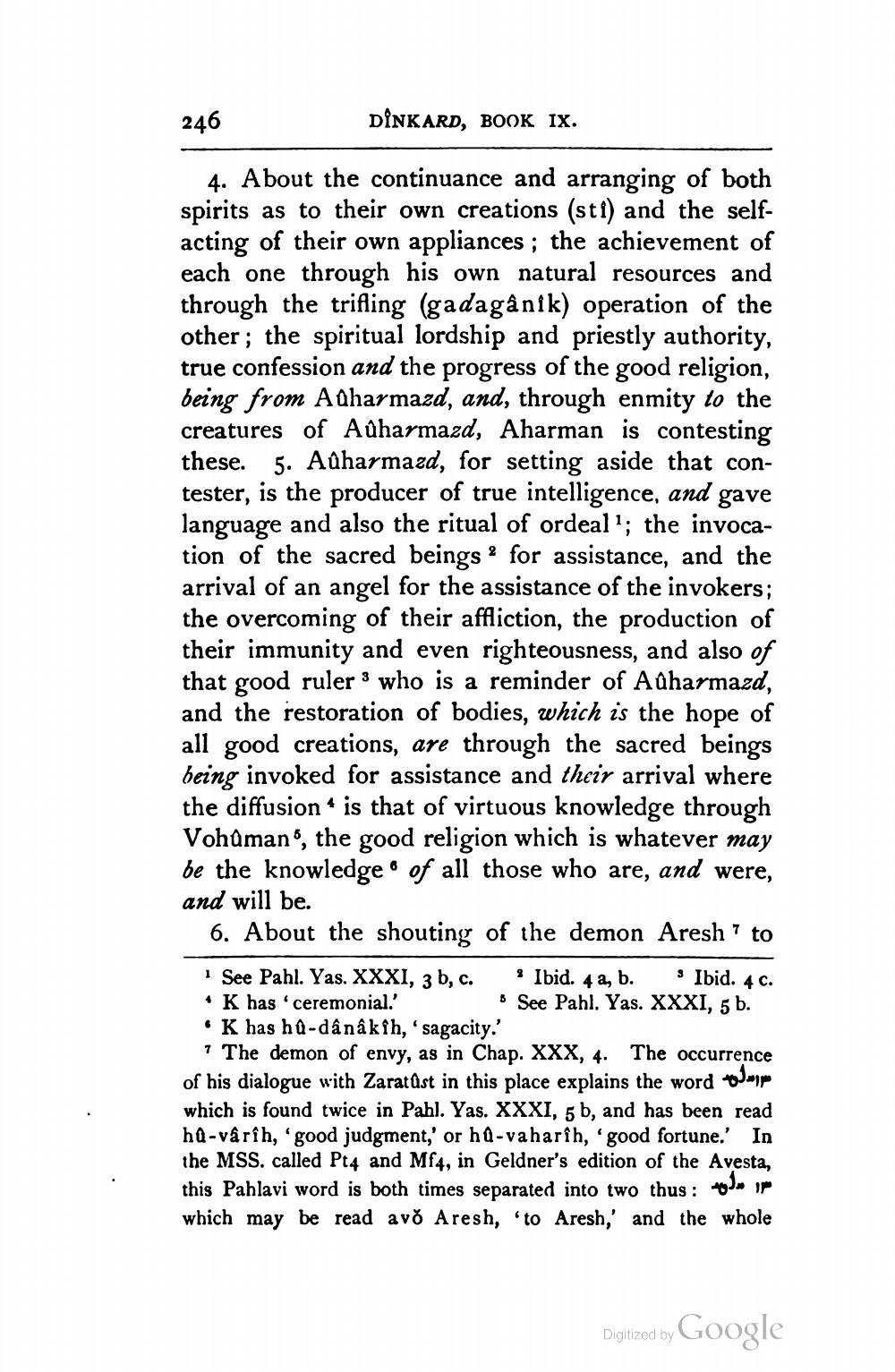________________
246
DINKARD, BOOK IX.
4. About the continuance and arranging of both spirits as to their own creations (sti) and the selfacting of their own appliances; the achievement of each one through his own natural resources and through the trifling (gadagânik) operation of the other; the spiritual lordship and priestly authority, true confession and the progress of the good religion, being from Adharmazd, and, through enmity to the creatures of Allharmazd, Aharman is contesting these. 5. Adharmazd, for setting aside that contester, is the producer of true intelligence, and gave language and also the ritual of ordeal”; the invocation of the sacred beings for assistance, and the arrival of an angel for the assistance of the invokers; the overcoming of their affliction, the production of their immunity and even righteousness, and also of that good ruler 3 who is a reminder of Adharmazd, and the restoration of bodies, which is the hope of all good creations, are through the sacred beings being invoked for assistance and their arrival where the diffusion is that of virtuous knowledge through Vohaman”, the good religion which is whatever may be the knowledge o of all those who are, and were, and will be.
6. About the shouting of the demon Aresh? to
1 See Pahl. Yas. XXXI, 3 b, c. Ibid. 4 a, b. Ibid. 4 c. * K has ceremonial.'
See Pahl. Yas. XXXI, 5 b. • K has hu-danâkih, sagacity.
? The demon of envy, as in Chap. XXX, 4. The occurrence of his dialogue with Zaratûst in this place explains the word toes you which is found twice in Pahl. Yas. XXXI, 5 b, and has been read hû-vârih, good judgment,' or hû-vaharih, good fortune. In the MSS. called Pt4 and Mf4, in Geldner's edition of the Avesta, this Pahlavi word is both times separated into two thus : modo ipo which may be read avó Aresh, 'to Aresh,' and the whole
Digitized by Google




